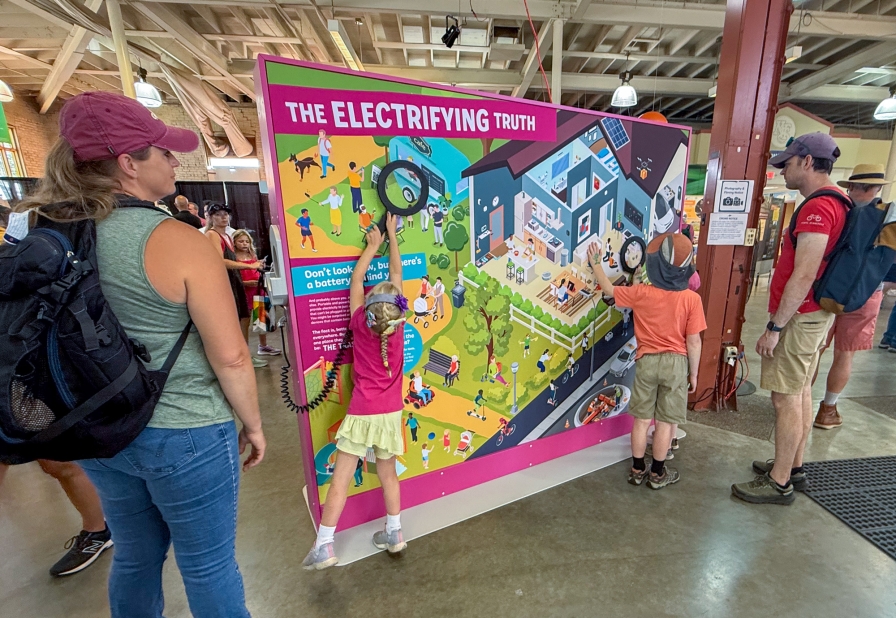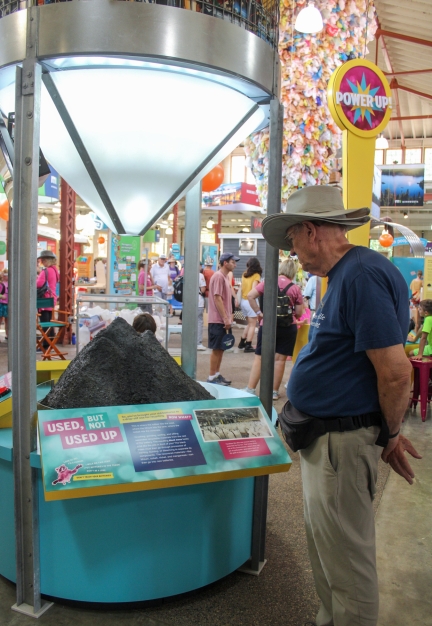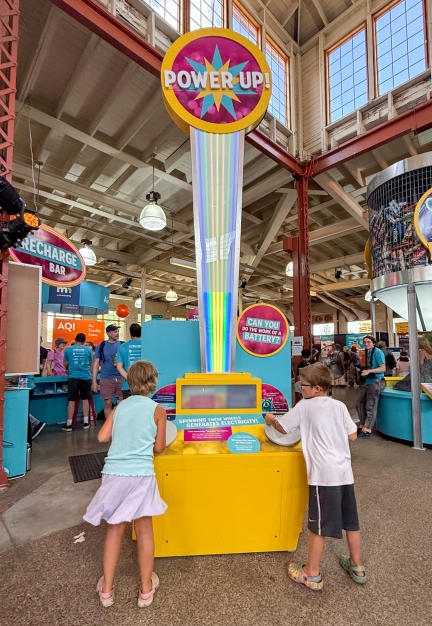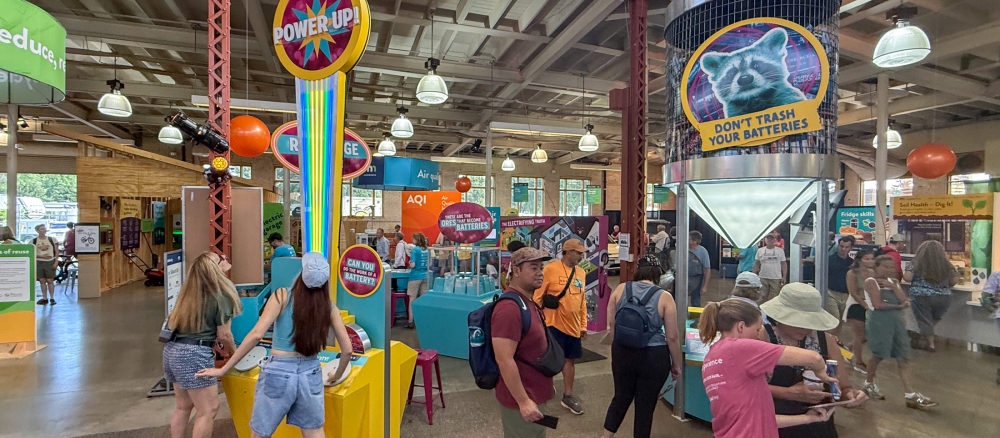If there’s one thing that CollectED wants you to take away from Eco Experience, it’s that batteries aren’t trash, they’re treasure: Recycling old batteries gives their materials a new life in your phone, car, or toothbrush.
CollectED — a Minnesota-based education and outreach initiative consisting of members from Macalester, Upstream Exhibits, Repowered, Recharge Academy, and Field Guide Inc. — teamed up with MPCA’s Eco Experience to create a brand new, carnival-style interactive exhibit to encourage fairgoers to learn about batteries.
“We wanted to make this really fun and interactive, especially with a topic that can be so stoic,” said Ben Amel, co-owner of Upstream Exhibits.
This initiative is led by Roopali Phadke, a professor of environmental studies at Macalester College whose teaching and research focus on energy and climate policy.
“E-waste is a huge problem in the United States,” Phadke said. “Right now, we only collect about 20% of the e-waste that we generate, and we generate about 46 pounds of e-waste per person annually in Minnesota.
Phadke has made e-waste a big part of her research, and this year’s battery exhibit is her brainchild. Her vision came to life after she was awarded a grant from the Department of Energy.
The exhibit itself is based on a survey conducted by Phadke and her students at Macalester during the fair last year. Students polled 1,000 people at Eco Experience about their battery knowledge and used their data to create the exhibit. CollectED’s survey revealed there was a big gap in knowledge about batteries.
CollectED’s exhibit aims to educate fairgoers, especially youth, on batteries and battery collection.
“It's a different world that they're growing up in, and everything that they use is battery-dependent, but they don't change batteries, the older people in their lives do,” Phadke said. “The interesting thing I learned is that young people are passionate about what they can do to address human rights issues and climate change issues. Battery recycling gets at both issues; it’s an easy action that can have a big impact.”

One thing the survey found was that people don’t realize that batteries are everywhere. Batteries are becoming more common in modern life, and oftentimes they’re hidden in products like air pods and vapes, all products that are designed in a way that can make it hard to recycle the batteries inside.
Batteries come in all shapes and sizes, from little AAA batteries or coin batteries to giant car batteries. One part of the new exhibit will reveal just how many batteries, big and small, may be hiding in our daily lives.
“We created a mural where we’re hiding things in plain sight,” Amel said. “Visitors can look at the printed mural and see how many battery devices they can count when they wave a black light wand over top.”
How batteries are recycled

Batteries power modern life, but what happens when they can’t power our devices anymore? CollectED estimates 266 million pounds of electronic waste could be recycled in Minnesota each year, but only about 24 percent of that is recycled. CollectED wants to spread the message that batteries might be used, but they aren’t used up.
When they make it to a reprocessing center, batteries get crushed into what is known as black mass, which is a blended-up mixture of metals found in batteries. This includes materials like lithium, copper, manganese, cobalt, and nickel.
Extracting these resources from e-waste is a much more efficient and less polluting method for sourcing critical minerals for production of new batteries rather than digging up the earth.
It's also imperative to recycle batteries because putting batteries in the landfill is extremely dangerous.
According to the EPA, over 3 billion batteries are tossed into landfills each year in the U.S, which is 3 billion too many. Batteries can leach toxins into the water and soil from landfills and cause fires when thrown away. CollectED will have examples of batteries that have caught on fire so fairgoers can see for themselves the amount of destruction even small batteries can cause.
“When you recycle batteries, you're preventing human and physical damage from those fires,” Phadke said.
To recycle old batteries, Phadke recommends checking out Call2Recycle, which has a battery drop-off locator that includes information on what kind of batteries are accepted at each facility.
Recharge at the fair

In addition to the hidden battery mural and black mass sculpture, fairgoers can take a break to charge their phones, but not without first earning their electrons. While at the bar, volunteers will quiz fairgoers on battery-related questions as they rest their legs and recharge at the battery bar. This is a chance to have volunteers answer your questions about batteries.
Check out live demonstrations at the battery bar, where volunteers will be dissecting laptops and other common battery-powered devices to show how to reclaim their recyclable materials.
While at the exhibit, try other hands-on activities like turning a crank to charge a mystery battery to see how much energy you can produce. Try your best to fill up the progress bar and reveal the mysterious battery you worked to charge.
Battery education doesn’t end with just the exhibit; check out the sustainability stage on Friday, Aug. 29, at 4 p.m. to witness the Battery Bar Poetry Slam. Get charged up with words from poet MC Hyland as well as sweet words gathered from fairgoers about their devices.
